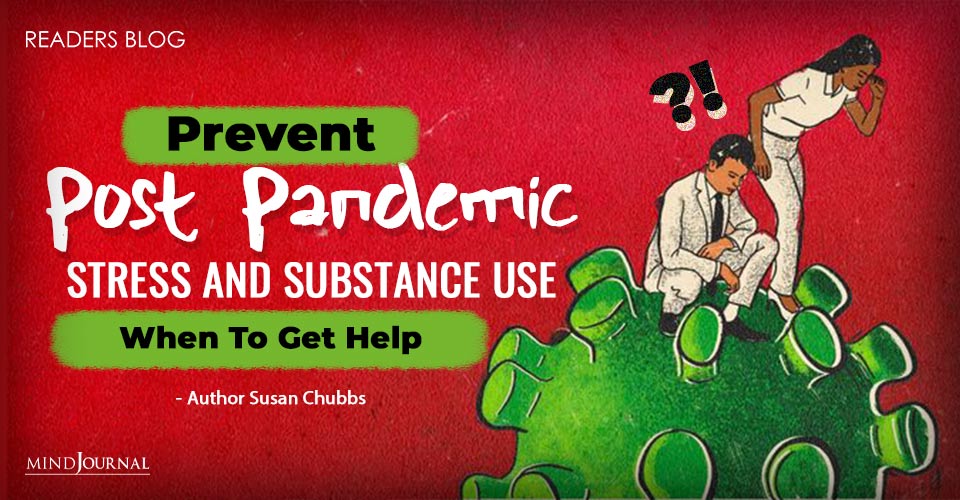While not everyone is addiction-prone, based on individual predispositions and availability, some people tend to be more vulnerable than others. Post pandemic stress has become a real problem for millions of people. Individuals are still struggling with substance use, and drug overdoses continue to rise.
The lingering effects are still there. Pandemic anxiety and stress go on for substantial numbers of people. These individuals lost relatives and loved ones, lost jobs, are immunocompromised, and livelihoods continue to be adversely impacted. The risk for addiction is high for many people. However, it can be prevented, and you can know when to ask for help.
Easing Post Pandemic Stress
Chronic stress could lead to something called learned helplessness. This is a situation when you feel unable to control your situation. You begin to feel that you are powerless in all aspects of life.
For example, according to the CDC during June of 2020:
- An estimated 40% of U.S. adults reported struggling with mental health or substance use.
- Approximately 13% had recently started or increased their substance use.
Research has shown that stress is a key risk factor in the development of addiction and in addiction relapse. However, with life returning to normal, how can we best cope with or ease the stress from the past two years and avoid using drugs or alcohol to cope.
Here are some effective methods you can apply:
1. Create a Support Bubble
Start sharing your thoughts and feelings with others. Doing this helps to normalize them and release some of the burdens. Find people with who you feel safe and make time to talk. Hearing another person’s fears and experiences helps place yours in perspective.
If sharing your feelings verbally does not come naturally, write them down first. Doing this will help encourage you to open up to the people around you.
2. Stay in the Present
On-going stress brings you to things in the past. Nothing is based in the present on what you’re actually doing in that exact moment. Focus all your attention on staying in the present moment. Look at what you are doing at this moment.
Focus on the five senses—what you can see, hear, touch, taste, and smell, and do this while taking a walk. This process helps to quiet down the buzz of stress.
3. Challenge Your Un-Helpful Thoughts
Challenge the thoughts that make you feel stressed. For example, if you are worried about returning to work, then gradually transition back, start with only one or two days, if you are able. In addition, make a list of key things you are worried about. Next to each one, build a small step-by-step plan that helps you overcome these worries.
4. Get Good Sleep
Getting a good night’s sleep is vital in helping reduce feelings of stress. There are numerous healthy methods to get restful sleep every night. Try and have the same consistent routine each night. It is crucial that your body and mind read the cues that it is time for sleep, and it can slow down and shut down.
Preventing Stress-Related Substance Use
According to the National Survey on Drug Use and Health, stress-related substance use significantly developed during the pandemic:
- About one in five adults perceived that the pandemic negatively affected their mental health.
- One in five adults perceived they drank more alcohol than they did before.
- 10.3% of past-year drug users perceived their drug use increased.
Prevention of substance use begins with recognizing triggers. These internal or external cues activate the urge to drink or use drugs. Triggers are unique to the individual, but some common ones include:
- Depression
- Anxiety
- Stress
- Anger
- Fatigue
- Loneliness
- Insomnia
- Relationship issues
- Job loss
- Financial struggles
Finally, cultivating activities that do not involve substance use improves your chances of not turning to drugs or alcohol to cope with stress. For example, this could include exercise, yoga and meditation, breathing exercises, counseling, healthy habits, and hobbies.
When To Ask for Help
Everyone experiences the symptoms of addiction differently. Because of this, there are unique and even tailored treatment options for substance use of all severity. However, it may be challenging to know when to ask for help.
It is essential to pay attention to some of the indicators or symptoms:
- Difficulty cutting down on or quitting a substance despite wanting to do so.
- Changes in performance at work or school.
- Withdrawal symptoms upon attempting to discontinue the use of a substance.
- Personality changes, such as secretiveness, irritability, or agitation.
- Changes in sleep patterns.
- Mood swings.
- Unexplained financial problems or needs due to spending money on drugs.
- Legal problems related to the use of drugs or alcohol.
- Difficulty or problems in interpersonal relationships related to the use of substances.
- Cravings for the substance.
When you notice some of these indicators, this would be the time to ask for help. There are several different forms of substance use treatment and support. For example, detox programs manage withdrawal symptoms. Individual and group counseling is effective. Behavioral therapies or other evidence-based approaches also work well.
Asking for help is not easy. However, if post-pandemic stress leads to excessive or chronic substance use or even addiction, now is the time to reach out. These problems become progressively worse and have the potential to lead to life-long struggles.








Leave a Reply
You must be logged in to post a comment.